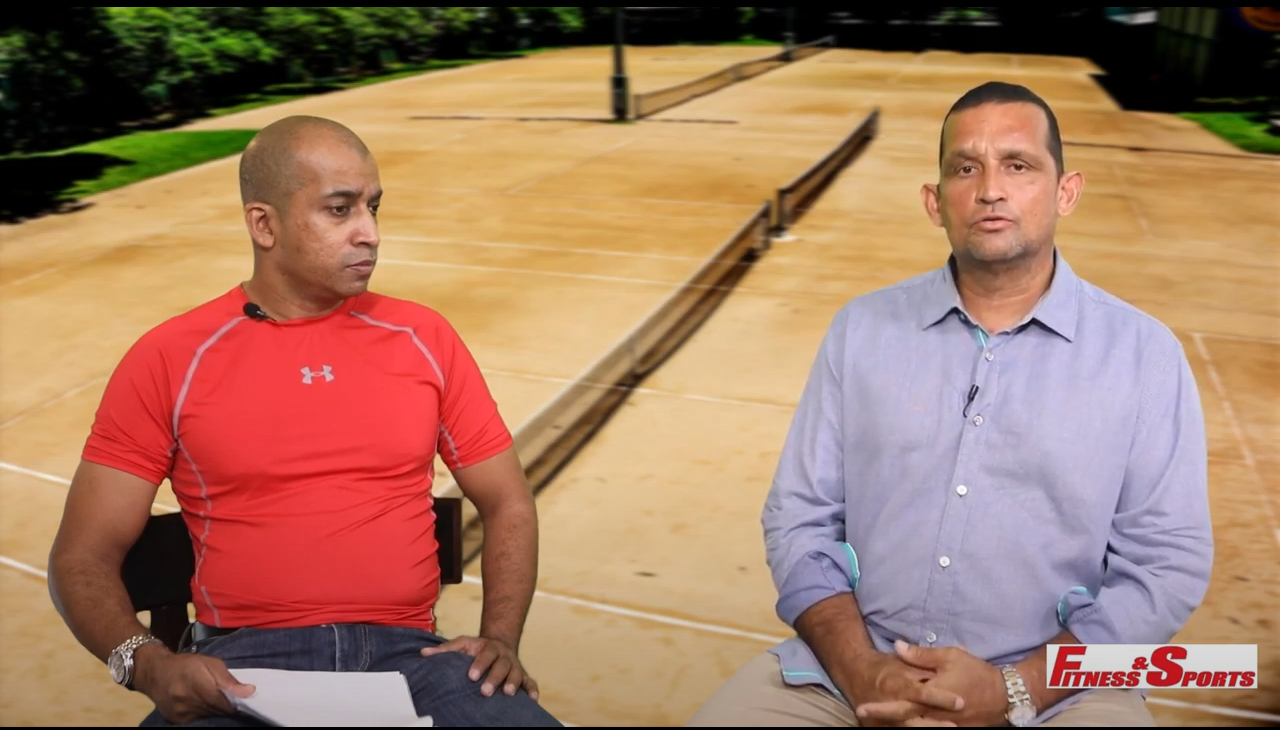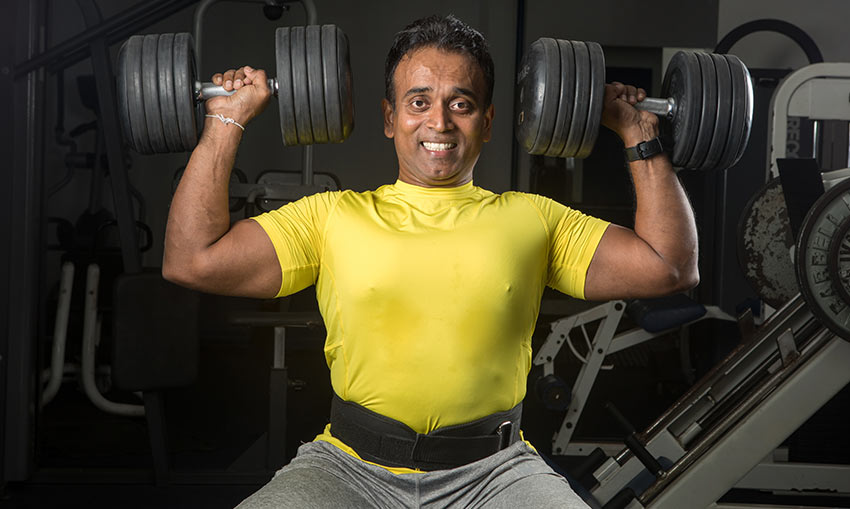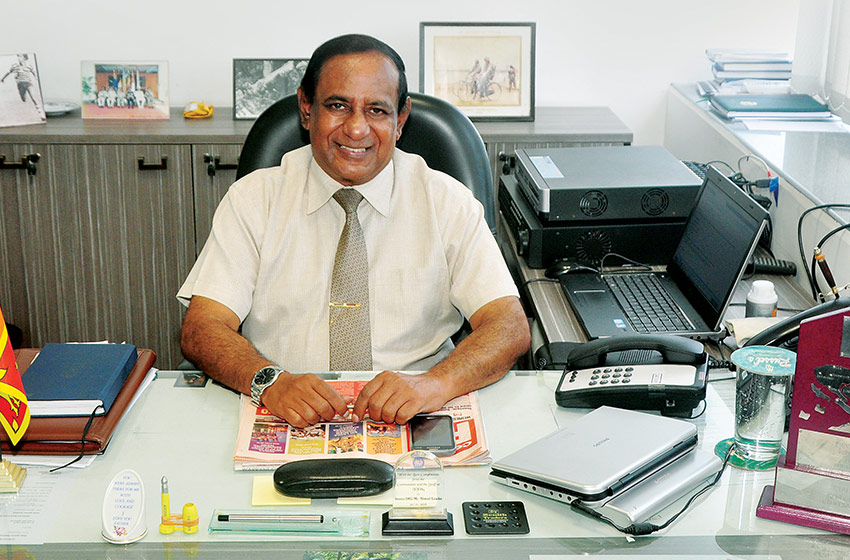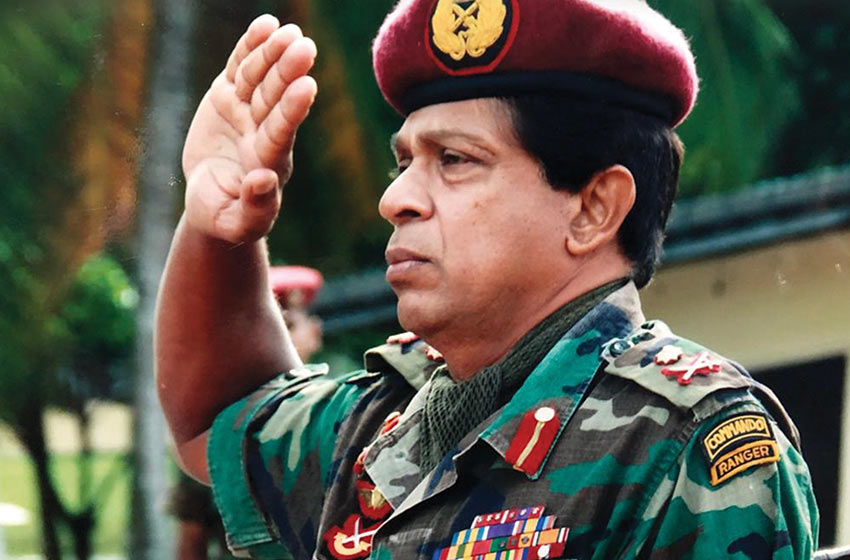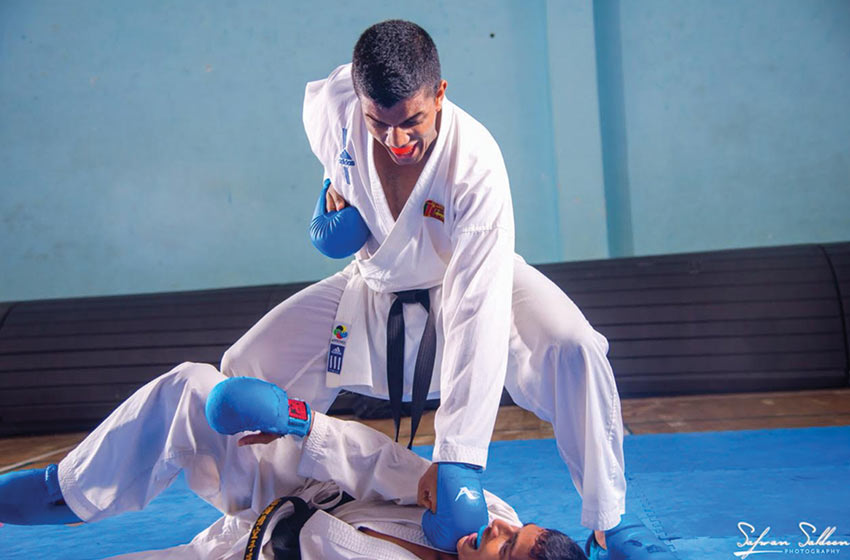
Warning: Illegal string offset 'single_ad_position' in /home/fitnessandsports/public_html/wp-content/themes/vinkmag/vinkmag/core/hooks/blog.php on line 187
Randev Athukorala is a soft spoken and down to earth young man who just happens to be a very accomplished karateka at 18 years of age. A student of St. Peter’s College Colombo, Randev captained Sri Lanka Schools from 2015 to 2018. In 2016 he won a Gold Medal at the South Asian Karate Championships in New Delhi. Last year Randev’s best World Rank for the Cadet Heavy Weight Category was 11. In December 2019, Randev won the Gold Medal at the Sri Lanka Schools Senior Karate Championships. His official ranking as per the World Karate Federation (WKF) is 17. In Asia he is ranked 5 and in South Asia this young man is Number 1. Fitness and Sports caught up with young Randev to understand more about his journey in karate, his training, what motivates him, and his goals for the future.
Fitness & Sports: At what age did you first take up Karate and what led you to this discipline?
Randev Athukorala: I started Karate when I was 5 years old. My Dad decided to put me into Karate at a young age as I was overweight. The doctor said in order to avoid any health issues later on in life, to do an active sport like basketball; but my Dad decided to put me into Karate (as he is a Black Belt Karateka and trains daily)…so to achieve a healthy disciplined life and to bring about a more holistic purpose to my life, karate became my core sport.
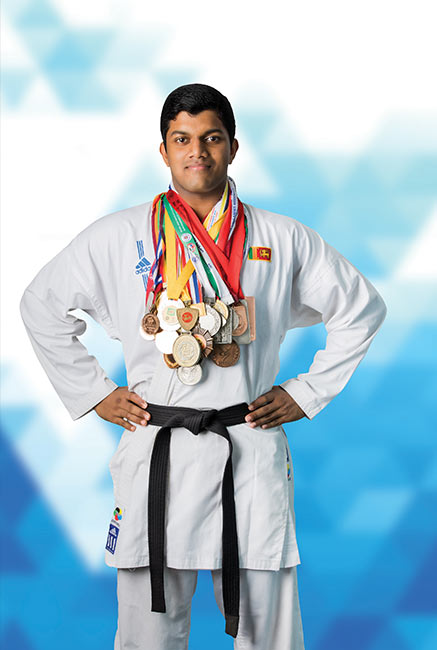
F&S: Tell us about the discipline of karate and of the particular style that you study and compete in?
A: Karate means empty hand. The traditional way of Karate that I learned initially by my master Sensei DMD Nimal, advocates that the true opponent is one’s self and it’s a journey to undertand our self and then become better over time. It is not about harming people and fighting like we see in movies. The style I specialise in is Shotokan. It is the style in which I was brought up. This style is all about having an open mind which influences the way you train and fight as well as your outlook on life. The discipline is more inward driven and with continuous training it makes you a rounded and better person in life.It is not short term driven but it all comes together in the end.
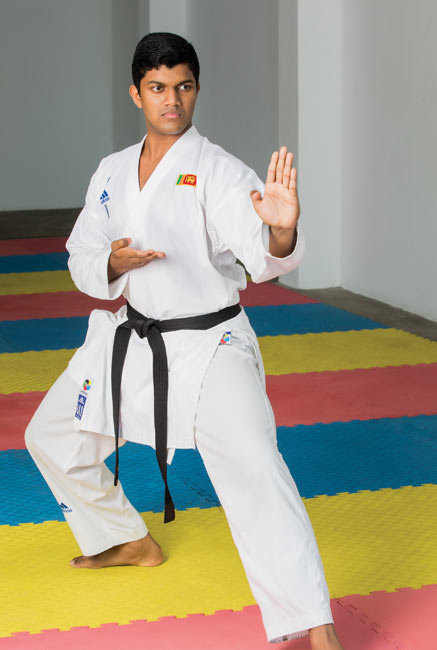
F&S: How does Karate for self-defence and Karate as a sport differ?
RA: Karate is a traditional martial art that has been there for centuries which became a sport recently and it is the second most popular sport in Sri Lanka in numbers. It will be an Olympic sport next year in Japan. This sport is in a continuous process of adaptation to suite a global audience which increases the relevance of the sport to today’s life style. The sport of Karate makes you scientific to understand the opponent and also fast in your reflexes to score points against your opponent at the sports level. But in daily life, it gives you self-confidence combined with the power of concentration. This gives the demand globally for the sport whilst the DNA is self protection. The techniques are continuously being developed whilst maintaining the traditions of Karate so that it gives mystique and beauty to the sport. I repeat ‘’Discipline’ is the base of Karate for both the martial art and the sport. There is a distinct difference in training for Karate as a martial art and training for competition. My coach Sensei Kalyana (the National Karate Champ and National Coach) says training for the martial art is “traditional training but hard fighting” and training for competition is “hard training but technical fighting”. This is because in the sport of Karate there are rules that govern the fight unlike in a real street fight. In the sport of Karate there is a great need for agility and tactical intelligence to handle situations in order to make a strike and score points. Speed, agility and tactics are keys to the sport of Karate.
F&S: Describe the experience when you competed during the early years?
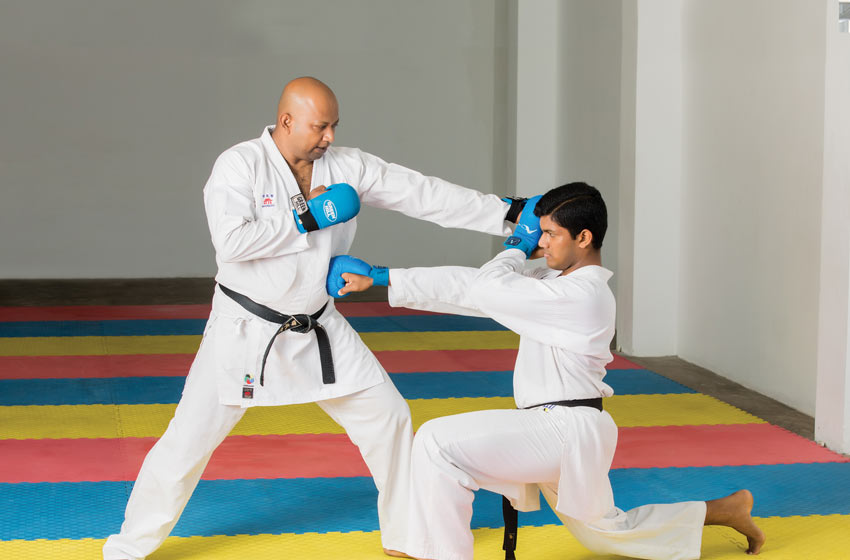
RA: Initially I used to take part in school tournaments when I was 6 years of age. In my early life of Karate i took part in the Kata event;Kata, a Japanese word, meaning literally: “form”, detailed choreographed pattern of movements made to be practiced alone. Why I did the Kata was because it teaches techniques that can be practiced full force whilst also developing the fighting spirit and fighting rhythms. When done correctly, kata practice also teaches the development of a clear mind. The Blue Ribbon event in the South East Asian world of Karate is ‘The Silent Knight Championship’ staged annually in KL- Malaysia. At the age of 10 years I represented the Sri Lanka Schools Karate Team and won the Silver medal among 25 countries. That was the turning point in my career and I thank the Manageress of Sri Lanka Schools Mrs Meewaddena and Mr. Anura who guided me during these formative stages. Thereafter, I turned to Kumitae events, which is fighting. My Dad did not push me to win but he encouraged me to enjoy the experience of participating and sportsmanship. He (Dad) told me that with experience and time I will naturally progress. When I was 12 years old I took part in the Sri Lanka Schools Championship staged in Wennappuwa and this tournament was very tough as I had to fight in 5 matches continuously. My Dad told me that I should win a medal for my brother Rehan who was just 4 years old. This motivated and sparked the fire in me. Everyone was stunned when I won the Gold Medal at this tournament. Then I went on to win the Gold Medal at the Nepal Karate Championship in Dhanghadhi (close to Kathmandu) and subsequently a Silver Medal at the World Karate Championship in Teheran, Iran, which was an experience I will never forget. The reason being we were not familiar with the type of food we ate. I used to think of the ‘Sri Lankan Flag’ and fight as normally my dad sits in the crowd and shows me the Sri Lankan flag to motivate me. He says ‘you are fighting for Sri Lanka and there are 21 million people you represent. Don’t give up’.
F&S: Taking up Karate at a young age and achieving success in competitions at the international level takes a lot of commitment and focus, how do you balance Karate training, your school work and time for friends?
RA: It was after winning the Silver Medal in Malaysia at the age of 10 that my Karate career really started to kick into high gear. During that time the whole international competitive experience was so overwhelming for me that my grades started dropping. Then my Dad stepped in and said that if my grades were not good I would not be able to do Karate and for me to start balancing my studies with karate. Even during my O’ Levels I was doing competitive sports. In August that year I went for the South Asian Karate Championships in New Delhi and won Gold but somehow studied and got 4 A’s for the O’ Levels. The most important thing is to have a balanced diet and ensuring that I had 8 hours sleep . Many people don’t know that the life of a Sportsman is very lonely and many sacrifices have to be made. People see only medals and photos in the media, but a lot goes on at the back end. Even today, I really work hard to balance my studies with Karate whilst spending time with parents and grandparents. Currently I am studying for my Advanced Level examinations and life is harder. I wake up at 4am to study and then train, then I have to be in school at 6am as I am a Prefect. After Prefect duty I used to go for National training and then come back to school. Prefect meetings, Karate training, school work, Interact club responsibilities, as I was the Vice President last year, really stretched me. Tuition classes twice a week in the evening and then going for training makes me come back home only at 9pm, and sleep at 11pm. It was tough balancing studies and sports but it is such training that brings in the discipline. My dad says ‘learn to enjoy suffering’, you will then find life easier later on. Nothing comes good without hard work and sacrifice. During my early years, due to my hectic schedule, I did not have time to meet with my school friends but once I became a Prefect I made some really good friends, and there came a balance to school life, Karate and friends. My school friends have been very supportive of my career in Karate and they are always there to encourage me. I don’t see my friends much other than in school, and seldom do I go out with them for a meal or a movie. This is the sacrifice I make for my sport.
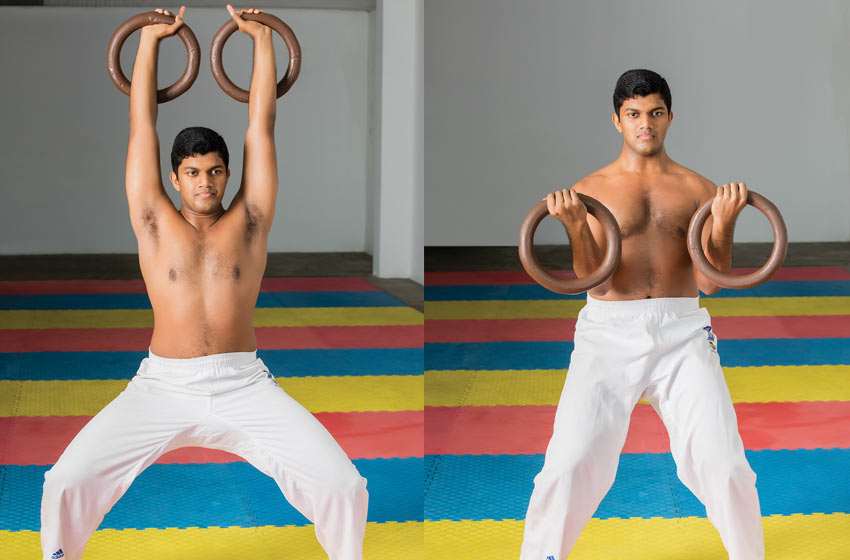
F&S: Who do you look up to in the Karate world?
A:When I was young there was a person who revolutionised Karate. His name is Rafael Aghayev. He incorporated mixed martial arts into the sport of Karate and really took the sport forward. Later on I followed a Japanese fighter in my weight category which is 84kg + called Ryutaro Araga. I admire the way he handles himself with discipline and his never give up attitude. I also admire my Sensei Kalyana for his commitment for perfection and fighting spirit.
F&S: Karate is a physical sport especially when you fight competitively, describe your training routine?
RA: When I was young maybe around 10 and under it was all about learning my skill and crafting it. The emphasis was mostly on crafting my technique. When I competed internationally I would go for Sri Lanka Karate training where they would incorporate strength training while maintaining focus on combining speed with technique and drive for perfection. I joined the Sri Lanka Karate Team when I was 15 years old. Then my physical training intensified. What had been my strength training workout was the warm-up at the Sri Lanka Team. The routine was jump squats, weights, running 10 rounds on the ground (4km), 4,000 punches a day, 4,000 kicks, and stretching including the full split. This was just the warm-up. The power training happens when you do actual sparring(fighting). Now my craft is at a 100% so I focus on improving my mental ability, the tactical knowledge of Karate, while my strength training is still the same with greater intensity and more power generation. The strength training we do is done traditionally as opposed to lifting barbells and dumbbells. We hold a 20kg plate and thrust it like a double punch (20 reps for 5 sets), then we would toss a truck tire forward for many reps, then we grab the tire and throw it to our sides (Russian Twists) this is to build explosive power. We do basic squats with a 20kg bar (25 reps for 4 sets). We do a circuit starting with squats then curls, and overhead tricep press all using the 10kg plate. The only way to develop fighting ability and skill is to fight even more. This is our ethos for the spirit of fighting, the killer instinct. We do a lot of sparring. Our Sensei gives us many different fight situations which we call bout management. It teaches us how to handle the fighting space. In boxing they call this ring management. We learn how to control the opponent and bend him to your will. After all the tactical applications are done, the Sensei throws us back into fighting and we fight. In the sport of Karate there is minimal contact to the head region, you stop the strike just before touching the skin. Below the head it is fair game except to the groin. We train without chest protectors and shin guards to get tough and to condition our bodies for the tournament where protective gear is mandatory.
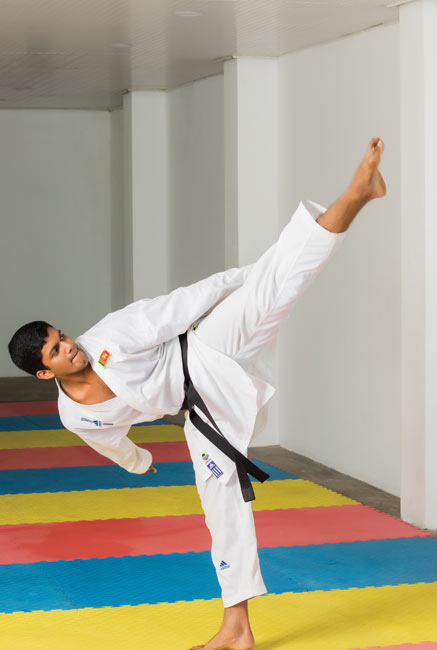
F&S: Before a fight, how do you prepare mentally?
RA: The day before the fight I pray and ask God for his guidance. I am a very strong Roman Catholic thanks to my parents. My parents raised me with the values of the importance of prayer. Whatever happens the family has to go to church together, says my dad. This is the bedrock of all I do. I leave everything to God. Just before the fight I will have my music on and will not let anything bother me. I will observe the other competitors and the way the judges score each fight. Every judge has a different way of scoring based on their own perceptions so it is very helpful to familiarise myself with this. Then when I fight I am fully prepared and I leave it up to God and follow my instincts and let my training come into action.
&S: What are your future aspirations in Karate and in life?
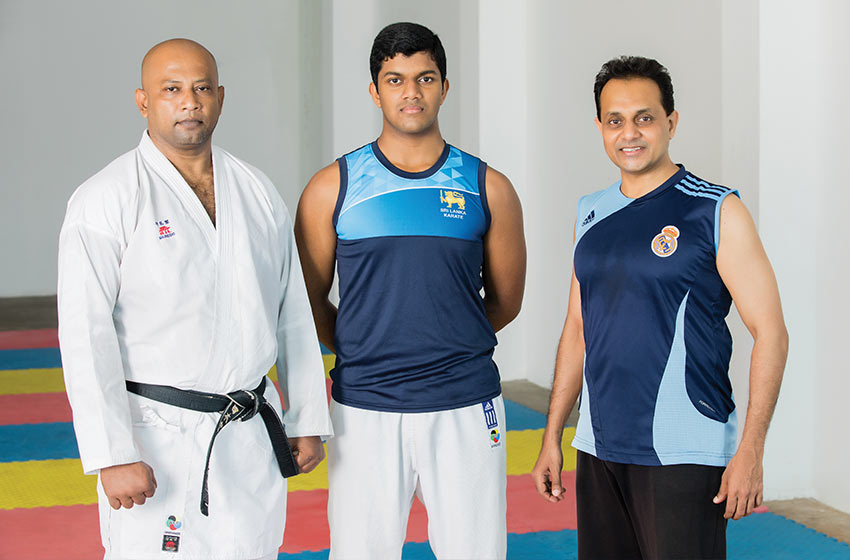
RA: My dream is to win an Olympic Gold Medal for Sri Lanka. My goals are to get there by winning tournaments both locally and internationally and moving up the international circuit. This December I am planning to go to a Shaolin Temple with my dad for training in China. As I have my A Levels coming up in 2020, which makes the next Olympics in Japan impractical, I am targeting the 2024 Olympics in Belgium. I would like to eventually fight professionally. There is prize money to be won when you fight professionally in international Karate tournaments so it is very possible to make a living out of Karate as long as you work hard and keep performing to a very high standard. Sport has become my life and I am so grateful to what it has given me I want to give back and get into coaching. I would also like to study Sports Management, Sports Performance Management along with Business Management as I am currently in the Commerce stream at school. I want to give back to the sportsmen in Sri Lanka and give them the opportunities that I have received. I like to help the sportsmen in Sri Lanka become financially secure so they can have a good life even after their sports career is over.
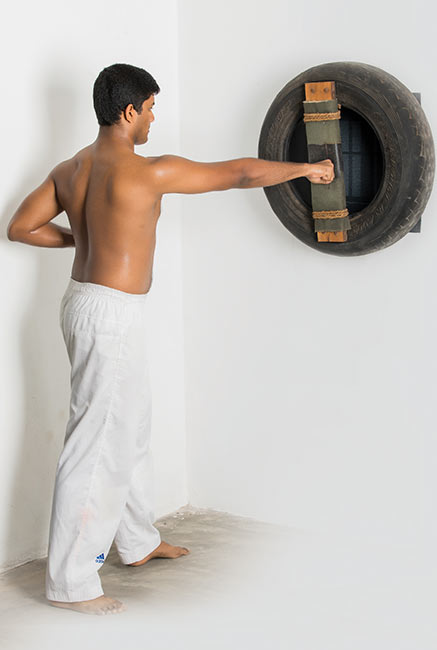
F&S: Behind every successful fighter is a strong corner team, who would you appreciate who has supported you and encouraged you in this journey?
RA: My basic foundation would be my Father, definitely. He is a Karate practitioner himself and he started me on Karate. He really pushed me to thrive through and bring me to where I am today. Afterwards I met my 3 main coachers. My first coach was Sensei D.M.D Nimal and he taught me the ABC of Karate.
Young Athukorala who captained the Sri Lanka Schools Karate team to the Asian Karate Cup 2019 In Malaysia winning the Under 19 – Kata and Kumitae events at the beginning of the year had stiff opposition at the Schools Senior Karate Championship as he was fighting two years above his age category and in the 84kg+ heavy weight class category but went on to fight to win the Gold Medal.
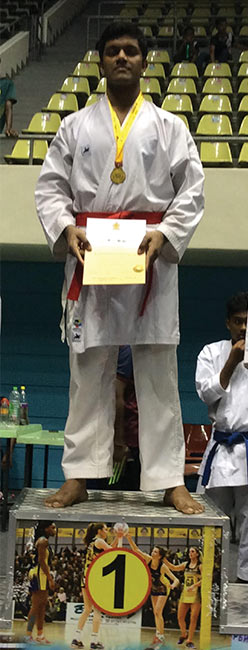
He was the St. Peter’s College coach. The Assistant Coach at College was Sensei Safraz who took me to the next level where I would compete against schools in other countries. Now my main coach is Sensei Kalyana, he is my inspiration. He taught me a great deal, he motivated me and he believed in me. He taught me that anything is possible. My Karate where I am right now is because of him. My Mother who is a school teacher would support me and encourage me and ensure a balanced diet comes my way. She would stay up for me when I come late at night and have my dinner ready. She would see to all my nutritional and health needs that would make it possible to train. The caring advice that she continues to give me as a Mother holds me in good stead. My Mother prevents me from turning into a robot of just studies and Karate by giving me a human aspect, which is the most important thing in life that gives meaning to everything else. My brother, my grandparents,and my extended family members all provide me with so much support and love it encourages me to do well. I owe a lot to my Peterite Family. My friends and teachers who encourage and support me at school. At the early stages Fr Lakmin, the Sports Head at college, Mr. Francis the Master In Charge and the former Rector Fr. Trevor Martin. I was awarded the ‘Most Outstanding Sportsman award at the last Colours Night by the then Minister of Sports Hon Harin Fernando, who was the Chief Guest. My friends are understanding and supportive of me even though I am not always there to hang out with them, and they are always there encouraging me and supporting the hard work I do and the sacrifices I make. Having good people around you is very important. God has blessed me abundantly and without God nothing would be possible.
Warning: Illegal string offset 'single_ad_enable' in /home/fitnessandsports/public_html/wp-content/themes/vinkmag/vinkmag/core/hooks/blog.php on line 204
Warning: Illegal string offset 'single_ad_position' in /home/fitnessandsports/public_html/wp-content/themes/vinkmag/vinkmag/core/hooks/blog.php on line 205

